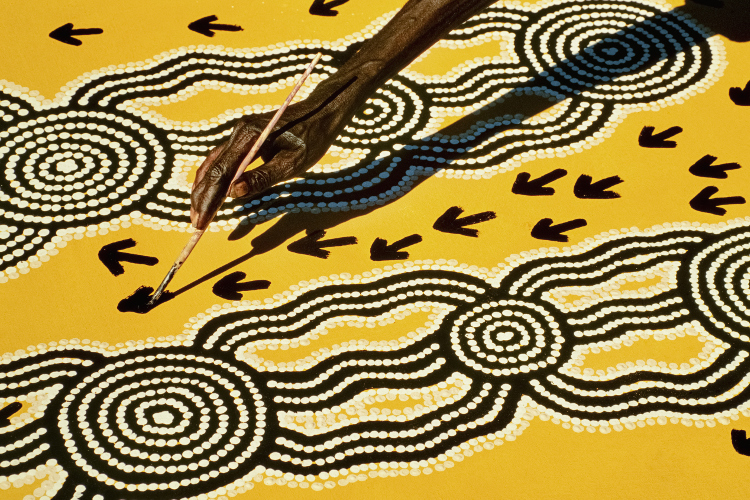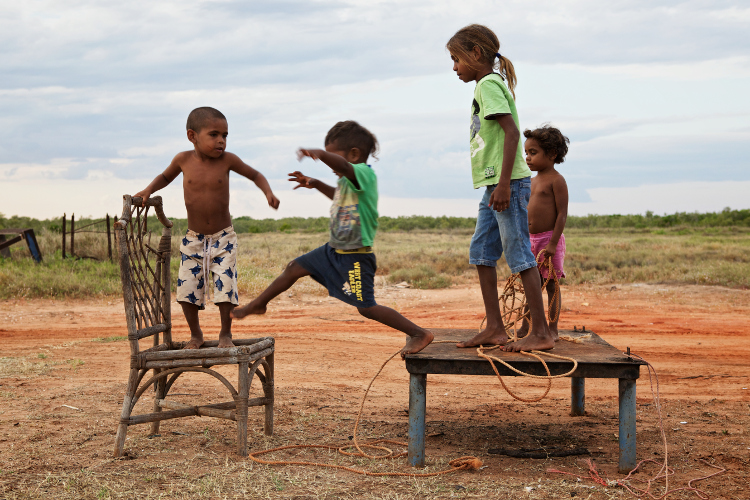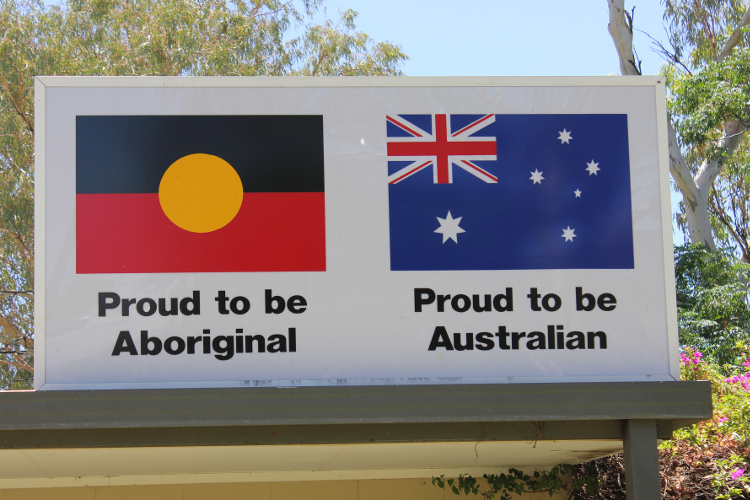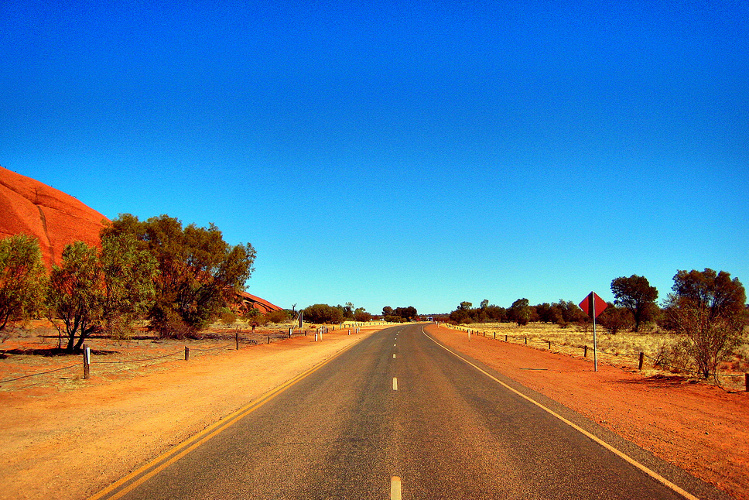
Despite the heavy concentration of stunning and accessible sites of Aboriginal importance in Central Australia, the number of tour operators that focus on Aboriginal culture or work with Aboriginal communities is still relatively low. It’s well worth doing your research and hunting out small, ethical operators. Doing a tour provides a good opportunity to support Indigenous owned-and-run initiatives, with profits going back to local communities.

RT Tours Australia (rttoursaustralia.com.au) offers Aboriginal-led experiences with a focus on bush foods; Jungala (jungala.com.au) has one-day culture walks, or half-day bike rides, with an Aboriginal guide; and Rainbow Valley Cultural Tours (rainbowvalleyculturaltours.com) organises visits to Rainbow Valley with a traditional custodian.
For self-starters: the design of the unforgettable and instructive Alice Springs Desert Park (alicespringsdesertpark.com.au), located on traditional land just outside of town, was inspired by the Arrernte worldview that unites desert plants, animals, people and land.
From Uluru-Kata Tjuta National Park and Yulara, the adjacent purpose-built tourist resort, Uluru Aboriginal Tours (uluruaboriginaltours.com.au) will help you gain an appreciation of Uluru’s cultural significance. It is owned and operated by Anangu from the Mutitjulu community.
SEIT Outback Australia (seitoutbackaustralia.com.au) also runs an all-day, immersive and culture-centred trip to Cave Hill.
Art is probably the most visible manifestation of Australian Aboriginal culture. And this country has the longest continuing art tradition in the world, which is also an economic mainstay of the Aboriginal community.
When buying Aboriginal art a bit of research will help you make informed and ethical decisions. Before you travel to the Red Centre, consult Desart (desart.com.au), the industry body for over forty Central Australian Aboriginal-owned art centres. Desart supports and represents these art centres, all of which are vital parts of community life, especially in remote Central Australia. They are also arguably the most ethical places to buy Aboriginal art.
In-town Alice Springs art centres include Mwerre Anthurre Artists (Bindi; bindiart.com), Tangentyere Artists (tangentyereartists.org.au), Tjanpi Desert Weavers (tjanpi.com.au) and Yarrenyty Arltere Artists.
At Uluru, look in the Cultural Centre for the Maruku Arts (maruku.com.au) and Walkatjara Art stores.
All art centres welcome visitors, but it is always best to call ahead for planning and out of respect for culture. Most are also represented in Alice Springs by Talapi (talapi.com.au), a central gallery that promotes the artists and artworks of Desart members.
For more helpful information about purchasing Aboriginal art, check out the Indigenous Art Code (indigenousartcode.org), a system to preserve and promote ethical trading in indigenous art, and read the short Purchasing Australian Aboriginal Art, A Consumer Guide (ankaaa.org.au).

For visitors to Central Australia, being aware of privacy and its importance to Indigenous Australians is a basic ethical travel requirement. Understanding issues around privacy demonstrates respect for Aboriginal culture. For example, permits are required to visit many communities. This system helps ensure the privacy of these communities. Permits need to be organised well in advance (many are free!) from the Central Land Council (clc.org.au) in Alice Springs.
If you visit an Aboriginal community, wait until asked before approaching homes or people. And remember that funerals and cultural ceremonies are times where privacy is particularly important (okay that just goes without saying for most cultures doesn’t it?).
Even when visiting tourist sites that are places of cultural significance, some areas may be closed or have restricted access, please respect this, and ask if you are unsure. Even when outdoors, just imagine you’re in a church with a sign that says: private do not enter. Don’t go through that metaphoric door.
Another example of ignoring the signs: climbing Uluru (Ayers Rock). Many travellers ignore the custodians of this awe-inspiring rock's advice. For safety, environmental and important cultural reasons the local Anangu Aboriginal community has never condoned the climbing of the rock yet thousands of visitors do it each year (some regret it afterwards). Would you climb the main altar of Saint Peter's Basilica in Rome because you like a good view, or splash around in the National 9/11 Memorial because you felt like cooling down that day? A 2012 management plan recommended the Uluru climb be closed – two years later it remains open.

Indigenous people have a unique relationship with the land and water of their country which entails the care and protection of the environment. There are many ways you can respect this spiritual relationship to country.
If you are interested in local environmental issues and your impact as a tourist, check out the Environment Centre NT (ecnt.org), they take donations and volunteers. For something a bit more homegrown, Arid Lands Environment Centre (alec.org.au), based in Alice Springs, is more focussed on Central Australia.
This article was original written by Ethan Gelber a writer/editor of long standing with a passion for responsible, sustainable and local travel. Follow along @thetravelword. It was reviewed and updated by Alan Murphy a travel journalist, who believes that travel involves a responsibility to local cultures and people. For more see his website www.roundtripfoundation.org.